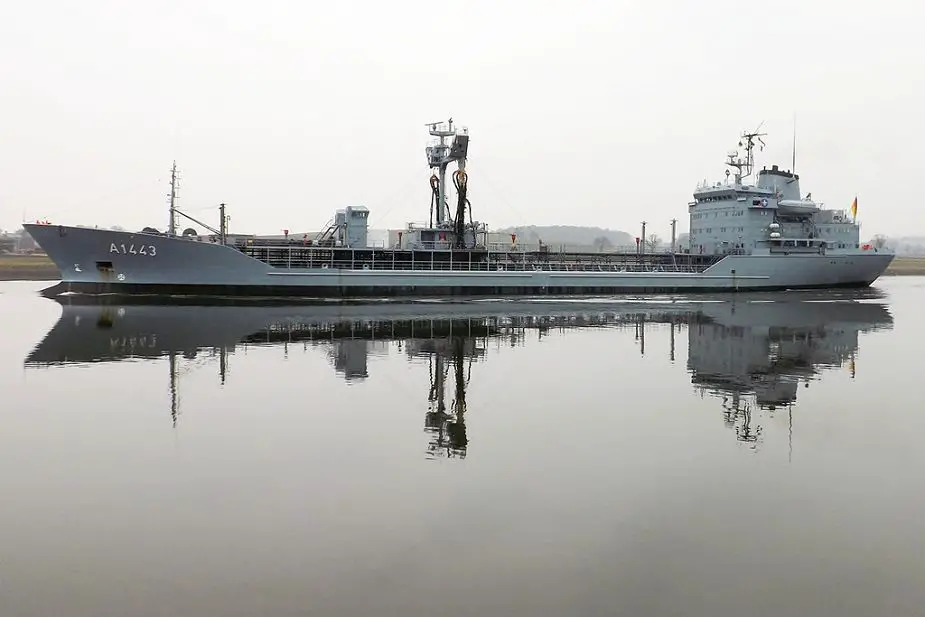Breaking news
German Navy has approved the acquisition of two new ship tankers Type 707.
The German Navy has approved the acquisition of two new ship tankers referred as Type 707 to replace the old Type 704 ships that were built in the 1970s. The new tanker vessels are scheduled to replace their predecessors from 2024.
 The new Type 707 will replace the old Type 704 FGS Rhön and Spessart tanker ship, on the picture Rhön FGS. (Picture source Wikipedia)
The new Type 707 will replace the old Type 704 FGS Rhön and Spessart tanker ship, on the picture Rhön FGS. (Picture source Wikipedia)
With a length of 170 meters, the new ships will be 40 meters longer than the FGS Rhön and Spessart, Type 704 tanker. They will also have an increased capacity, being able to carry 15,000 cubic meters of fuel. An option for the embarkation of up to 20 containers is also included. The new fleet tankers will also have a civilian crew. However, the size of the crew will decrease from 42 to around 20 people.
The Type 707s will have increased maximum speed to be able to keep up with more modern navy ships. Displacing over 20,000 tons, the ships will be able to attain speeds of over 20 knots.
The two double-hull tanker vessels type 707 are planned to stay in service with the German Navy fleet beyond the 2050s.
The Type 704A Rhön-class tankers are a class of replenishment oilers used by the German Navy to provide underway replenishment for its ships at sea. In 2018 it was announced by the German Navy that the ships are planned to be replaced in 2025.
Originally the ships were built for Libya as Okene (Rhön) and Okapi (Spessart). Rhön and Spessart are names of forests (small mountain ranges) in Germany. “Spessart” was built in the year 1974 for a civilian company by the Kröger Yard in Rendsburg, Germany. After modification “Spessart” was commissioned on September 5th 1977. From there she was part of the Auxiliary Squadron and stationed in Naval Base Kiel. The crew, consisting of 12 officers and 34 seamen, are civilians. “Spessart” equipped with five replenishment stations two for solid and three for fuel transfer.



























